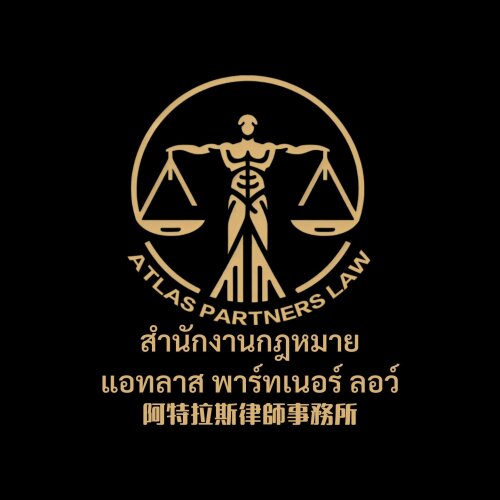Best Employment Benefits & Executive Compensation Lawyers in Chiang Mai
Share your needs with us, get contacted by law firms.
Free. Takes 2 min.
List of the best lawyers in Chiang Mai, Thailand
About Employment Benefits & Executive Compensation Law in Chiang Mai, Thailand
Employment Benefits & Executive Compensation in Chiang Mai, Thailand, involves legal frameworks that regulate the benefits and compensation employees receive beyond their standard salary. This includes topics such as pensions, health insurance, stock options, bonuses, and other forms of incentives or compensation packages. The law ensures fair treatment and defines the rights and obligations of both employers and employees within the workplace. It is crucial for businesses and employees to understand these laws to ensure compliance and equitable treatment.
Why You May Need a Lawyer
There are several situations where you might need legal assistance in Employment Benefits & Executive Compensation:
- Negotiating compensation packages during hiring or promotions.
- Resolving disputes related to benefits or executive compensation.
- Drafting or reviewing employment contracts to ensure compliance with Thai law.
- Filing claims for wrongful termination or disputes over benefits entitlements.
- Advising on complex compensation structures like stock options and performance bonuses.
Legal expertise can help both employers and employees navigate these challenges, avoiding costly legal disputes and ensuring fair practices.
Local Laws Overview
Chiang Mai operates under Thai national labor laws, which are applicable for Employment Benefits & Executive Compensation:
- Labor Protection Act: Defines the basic rights and obligations, including working hours, leave entitlements, and severance pay among others.
- Social Security Act: Obligates employers to provide social security benefits, including healthcare and employment injury protection.
- Revenue Code: Governs taxation on compensation, including income tax implications for various types of compensation.
- Workmen's Compensation Act: Covers compensation related to work-related injuries or illnesses.
Local interpretations and applications of these laws can vary, making local legal advice crucial.
Frequently Asked Questions
1. What benefits are employers legally required to provide in Chiang Mai?
Employers must provide benefits such as social security, healthcare, and workmen’s compensation. Additional benefits are often negotiable.
2. Are bonuses mandatory for employees?
Bonuses are not mandatory unless specified in employment contracts or company policies.
3. How is executive compensation typically structured?
Executive compensation often includes salaries, performance bonuses, stock options, and other incentives, designed to align the executive’s interests with company goals.
4. What should I do if my employer fails to provide the agreed benefits?
Consider consulting with a local lawyer to understand your rights and explore options for legal recourse or mediation.
5. Can employment contracts override statutory benefits?
No, statutory benefits outlined by Thai law cannot be overridden by employment contracts. Contracts can offer more but not less than what is legally required.
6. How are disputes over compensation handled?
Disputes can be addressed through negotiation, mediation, or through the Labor Court in Thailand if necessary.
7. What taxes apply to executive compensation?
All compensation, including bonuses and stock options, is generally subject to income tax under the Thai Revenue Code.
8. Can benefits and compensation policies be changed unilaterally by the employer?
No, changes typically require agreement and may need to comply with legal standards and employee contracts.
9. How are expatriate compensation packages treated?
Expatriate packages often include additional benefits to cater to relocation needs, but tax and legal implications must be considered.
10. What is the process for negotiating severance packages?
Negotiation should be based on statutory entitlements and any additional terms agreed in the contract, with legal advice recommended.
Additional Resources
For additional support, consider the following resources:
- Chiang Mai Labor Office: Offers guidance and support for labor issues.
- Thai Chamber of Commerce: Provides resources for employers on compliance and best practices.
- Legal Aid Centers: Can offer free or affordable legal advice on employment-related issues.
Next Steps
If you require legal assistance in Employment Benefits & Executive Compensation, consider the following steps:
- Research: Understand the basics of your issue by reading online resources or consulting informational guides.
- Consult a Lawyer: Identify local law firms specializing in employment law and schedule a consultation.
- Prepare Documentation: Gather relevant documents such as your employment contract, benefit statements, and any correspondence with your employer.
- Evaluate Options: Discuss potential strategies with your lawyer, including negotiation or legal action if necessary.
Taking informed and timely steps can significantly improve your chances of a favorable outcome.
Lawzana helps you find the best lawyers and law firms in Chiang Mai through a curated and pre-screened list of qualified legal professionals. Our platform offers rankings and detailed profiles of attorneys and law firms, allowing you to compare based on practice areas, including Employment Benefits & Executive Compensation, experience, and client feedback.
Each profile includes a description of the firm's areas of practice, client reviews, team members and partners, year of establishment, spoken languages, office locations, contact information, social media presence, and any published articles or resources. Most firms on our platform speak English and are experienced in both local and international legal matters.
Get a quote from top-rated law firms in Chiang Mai, Thailand — quickly, securely, and without unnecessary hassle.
Disclaimer:
The information provided on this page is for general informational purposes only and does not constitute legal advice. While we strive to ensure the accuracy and relevance of the content, legal information may change over time, and interpretations of the law can vary. You should always consult with a qualified legal professional for advice specific to your situation.
We disclaim all liability for actions taken or not taken based on the content of this page. If you believe any information is incorrect or outdated, please contact us, and we will review and update it where appropriate.










